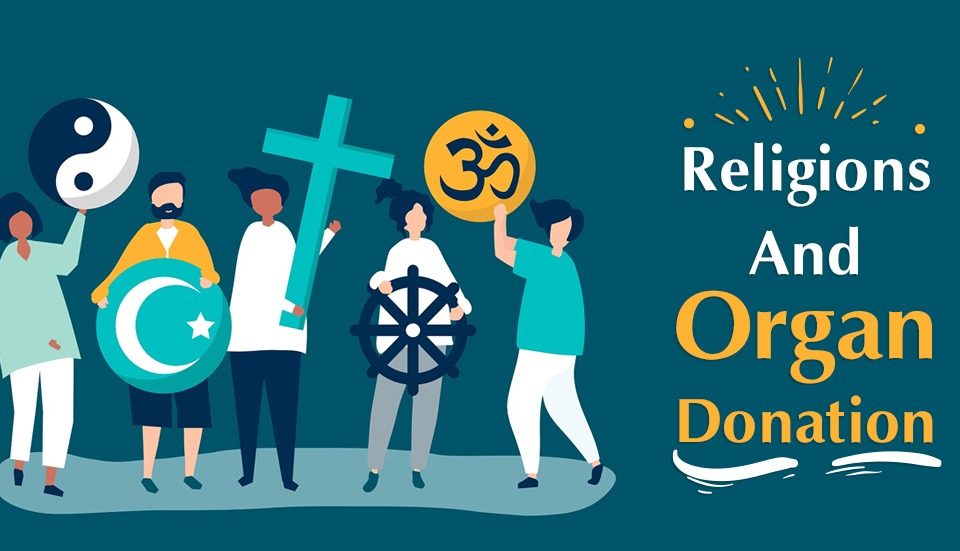Religion and medical science have always been associated with each other to suit the beliefs of mankind. Organ donation hasn’t been a different story, the whole cause has also been judged through the aspects of religious beliefs. In a country like India where the population is 1.33 billion the organ donation ratio should have been proportionally higher but unfortunately it is the opposite. The people dying in need of organs is higher in-fact. Not only do we have higher population density but also diverse cultures covering the different geographies of our nation.
Organ transplant is not a new process, as ancient as our mythology states the organ and tissue transplantation have been recorded in the texts. But unfortunately the the whole concept of organ donation has been shadowed by multiple number of myths and taboos, one of them being “My religion doesn’t allow me to donate organs”
There are 22 major religions in the world and none of them opposes the act of organ donation. To quote a few:
Hinduism:
The concept of life after death is prominently believed in Hinduism. There is a popular myth associated with this belief that if organs are donated, the person will be re-incarnated again with deformities. But, organ donation has always been strongly supported by ancient texts, “Of all the things that it is possible to donate, to donate your own body is infinitely more worthwhile.” — The Manusmruti “As a person puts on new garments giving up the old ones the soul similarly accepts new material bodies giving up the old and useless ones.” — Bhagavad Gita chapter 2:22
Islam:
Islamic scholars have always advocated the donation of organs in betterment of human life. Syari’ah advocates human welfare and interest, and the preservation of human life. “Organs from the deceased can be transplanted to a patient, where the life of the recipient depends on the transplant, or if the continuation of the basic bodily functions of the recipient depends on the transplant. This is however, dependent on the deceased’s consent, or that of his next-of-kin after his death, or by the decision of the leaders of the Muslim community, should the deceased be unidentified, or does not have any next-of-kin”*
Christianity:
Christianity has always believed in the power of healing. There is a strong believe that, “Jesus sent his 12 disciples out with the imperative to heal disease and illness” “In eternity we will neither have nor need our earthly bodies: former things will pass away, all things will be made new.”
—-Revelation 21: 4-5
Sikhism:
The Sikh philosophy and teachings strongly believe in values of giving, helping others including donation of organs.
“The Sikh religion teaches that life continues after death in the soul, and not the physical body. The last act of giving and helping others through organ donation is both consistent with and in the spirit of Sikh teachings.”
—Dr. Indarjit Singh OBE, Director of the Network of Sikh Organisations UK
The views and opinions expressed, and assumptions & analysis presented in this content piece are those of the author(s) and do not necessarily reflect the official policy or position of any other agency, organization, employer or company. The information, including but not limited to, text, graphics, images and other material contained on this website are for informational purposes only. The purpose of this website is to promote broad consumer understanding and knowledge of various health topics. It is not intended to be a substitute for professional medical advice, diagnosis or treatment. Always seek the advice of your physician or other qualified health care provider with any questions you may have regarding a medical condition or treatment and before undertaking a new health care regimen, and never disregard professional medical advice or delay in seeking it because of something you have read on this website




